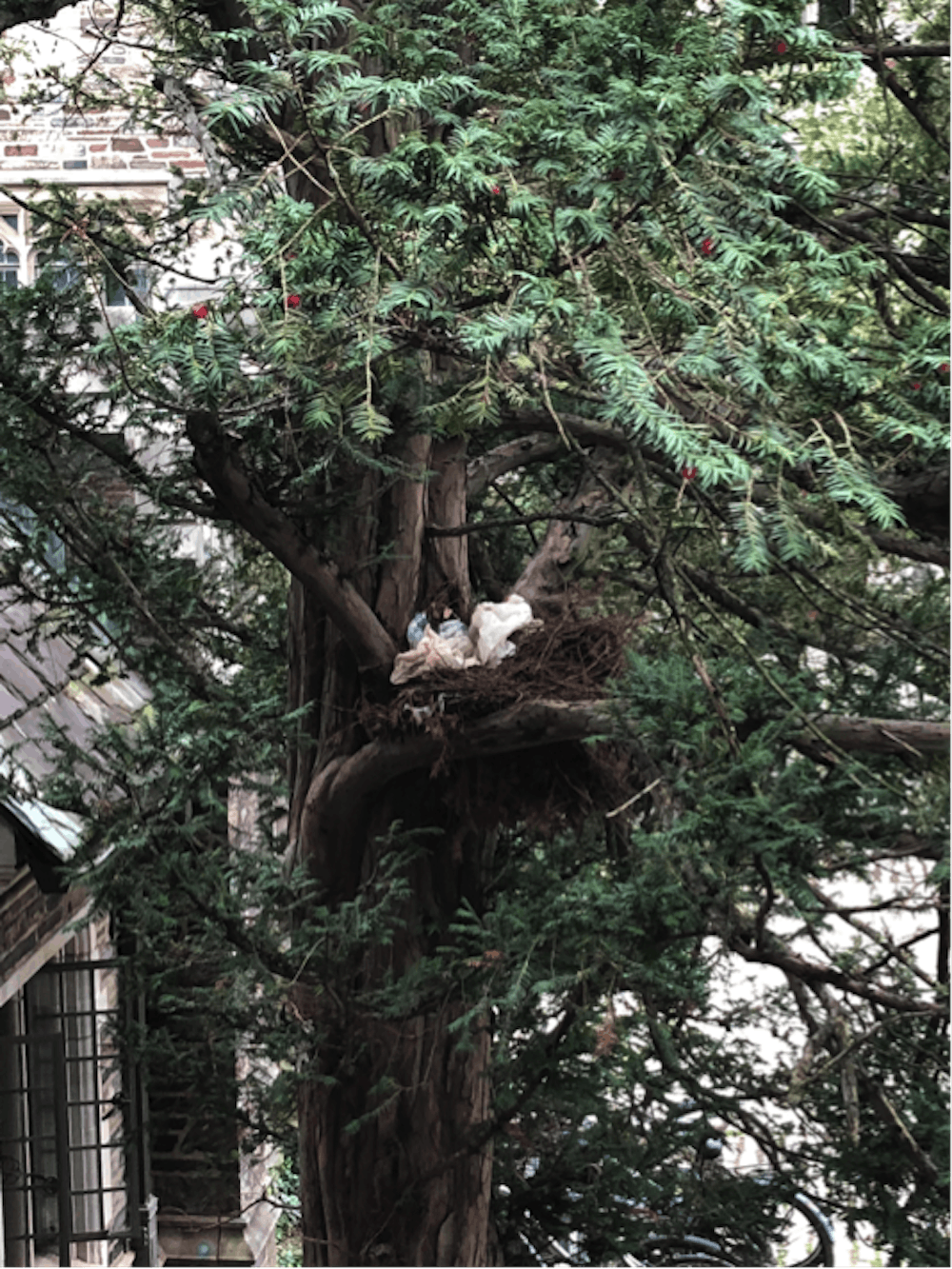If someone asked you, off the top of your head, to describe the wildlife you see at our University, you would undoubtedly think of the seemingly ever-increasing squirrel population. From day to day we tend to pay them little mind, unless of course you happen to spot a black squirrel on your way to class. You may be surprised, however, to learn that our little neighbors are quite literally living in trash. The culprit of their dangerous and unsanitary housing predicament is clear: uncovered trash cans around campus.
The University has a wide variety of recycling and trash can models in use around campus. Some models, like those stationed outside Corwin and Robertson Halls in Scudder Plaza, are covered and have handles which must be pulled down to open them. However, other models, like the cans near Blair Arch, have no lid. Trash cans without lids not only give squirrels easy access to trash but also are overall less sanitary than cans with covers on them.
Like bird feeders, the height of the cans is little deterrence to the small rodents, who with ease can jump into a can, grab a piece of trash, and carry it off to its nest. The dangers posed to animals by trash are plentiful. According to the Humane Society of the United States, sharp objects like bottle caps can be ingested and cause internal cuts. Animals trying to get liquid out of an aluminum can may be scraped by the sharp edges. Plastic can choke animals or cause intestinal blockage. Suffice to say, the fact the critters living in dirty, flimsy plastic bags should be concerning to us. The only way to keep the squirrels from accessing the trash cans is by putting on lids they cannot open.
If changing the cans to help out the squirrels does not convince you, then think about how bad open trash cans are for us as well. As trash piles up, the wind can blow lighter objects like plastic bags out of the can and around campus. This is more work for facilities workers who have to go around and pick up loose trash. It is easy to accidentally litter by carelessly throwing a piece of trash toward the can without realizing you missed it entirely. If you feel that having trash blowing around campus is nasty, think about what happens when it rains into an open can.
These issues can be alleviated by the simple switch to closed cans. Wind will no longer be able to blow out plastic bags and other light debris, and rain will not get inside the can. You will have to actually open the can and directly place your trash inside, not throw it in from several feet away, preventing lots of trash from ending up on the ground right next to the trash cans. On top of all that, the cans will be less of an eyesore without the garbage exposed. The switch will make our University more attractive and enable us to be better stewards of the environment on campus.
For the sake of the squirrels, and for our own interests as well, the University should replace all outdoor lidless trash cans with other models that feature a lid or cover.
Hunter Campbell is a sophomore from East Arlington, Vt. He can be reached at hunterc@princeton.edu.








